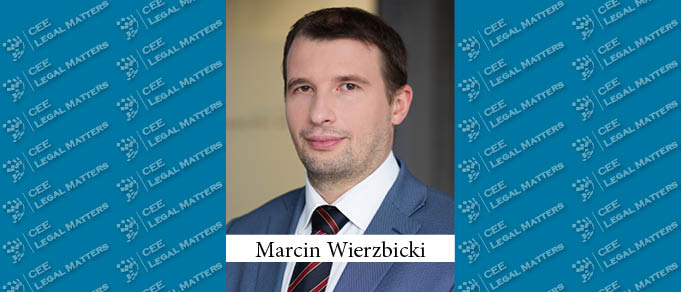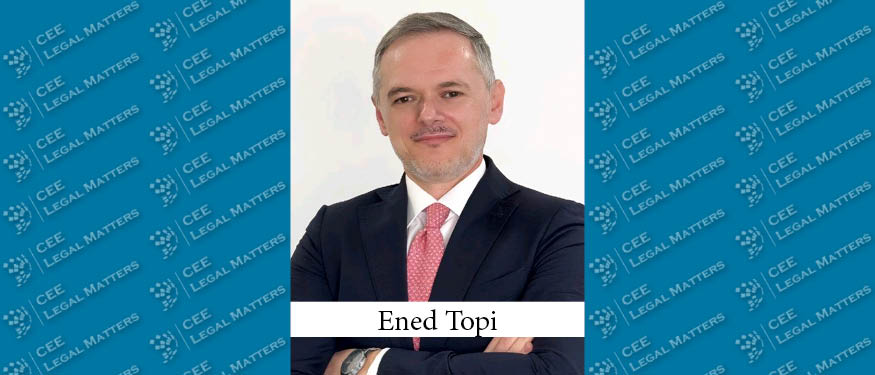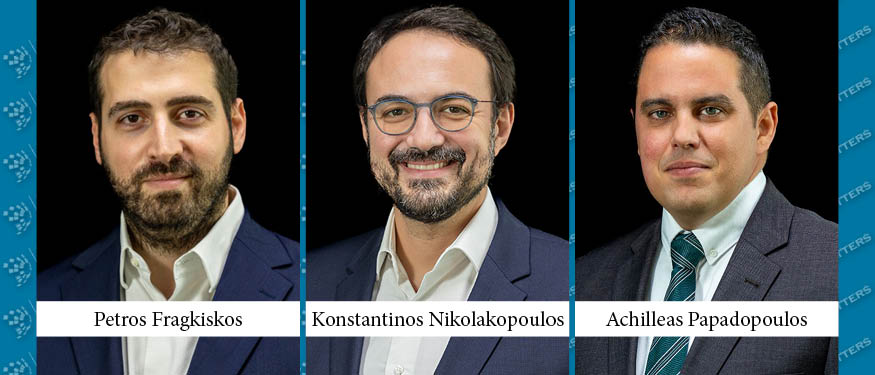Poland and Ukraine – a distinct pairing some would say. The two European countries are close to one another – both geographically and historically – yet, while they share a lot of similarities, they remain quite distinct. Given the sheer size of these countries and economies, their relationship, and a growing amount of investor interest – going both ways – we took a deeper dive to explore what makes their relations tick. And what better way is there to understand the countries’ entangled relationship than to talk to someone with Marcin Wierzbicki’s profile? Born and raised in Poland, the Konieczny Wierzbicki Managing Partner has had the opportunity to spend quite some time in Ukraine and, as such, has a unique perspective on both countries and their respective markets.
CEELM: Marcin, how did you decide to get into law?
Wierzbicki: It was while I was back in high school. As the time for deciding on the college to enroll in came closer, being good in history and logical reasoning, I decided on law. It made sense to me. A very good friend of mine made the same career call, which only bolstered my confidence in that decision. I went to the Jagiellonian University, one of the best law schools in Poland.
During my university days, I tried to take up as many international scholarships as possible. I first went to Sydney for a year, on an exchange to a business school, then to Tilburg in the Netherlands for a semester.
Eventually, I took a semester in Ukraine, and I liked it so much that I decided to do my master’s thesis at the Kyiv-Mohyla Academy, with a focus on differences between limited liability companies in Poland and Ukraine.
I ended up going back to Ukraine for another six months, for a couple of internships and my master’s.
CEELM: You did two internships during your time in Ukraine – what was the country like, back then?
Wierzbicki: Yes, I did an internship with the commercial department of the Polish embassy in Kyiv first, and then one with Asters.
Back then, at the turn of the previous decade, the entire country was brimming with positive ideas and notions of joining the EU. That stood to reason, with a lot of international businesses – including Polish ones – coming in strong.
My time at Asters – which is a major law firm in its own right – was very exciting and a great experience for me. I still have friends that I’ve met there, staying in touch both socially and business-wise. Not to mention all the fine people I met at the academy, with whom I did my studies. I make it a point to stay in contact with them, even with most of them having left the country since, especially following the political turmoil a few years ago.
CEELM: How did you fare, as a foreign student enrolled in a Ukrainian university?
Wierzbicki: Even though Ukrainian is similar to Polish, I did not understand a word of it when I went there. The committee that decided on my master’s scholarship used to insist that applicants be fluent in either Ukrainian or Russian, but I managed to persuade them that my international experience and exposure up to that point, as well as my time in Ukraine, were enough.
For the first few weeks at the academy, I had some struggles because the administration there spoke no English. Thus, all the paperwork, student enrollment procedures, signing up for lectures – it was all a challenge. Still, within three or four months, I could sense that I was taking control of the language – I was able to study in Ukrainian, even pass exams in it, it just came to me naturally.
CEELM: Did those language skills come in handy after university? How often do you go back to Ukraine?
Wierzbicki: I do try to visit whenever I can, almost every year. Of course, last year was a bit difficult due to the pandemic, but other than that, I keep strong ties with Ukraine still.
Whenever I do go around, I visit new law firms just so that I can meet new people, have a chat with them, and keep the beat on the legal market of the country. Getting to know how businesses continue to develop, as well as the legal market, is very important to our law firm as well.
CEELM: Given the close proximity of the two, how would you characterize the economic links between Poland and Ukraine?
Wierzbicki: It is important to note that Poland has an estimated 1.3 million Ukrainian nationals that have emigrated in the past ten years. Given the language similarities and geographical proximity – including good train and airline connections – it made sense that Poland was their destination. Also, a number of Ukrainian companies have moved to Poland – which is a natural move as well, seeing that Poland offers them wider EU access for doing business.
Ukraine, on the other hand, has a very good trend of IT and tech sector development – which is attractive for Polish companies. In case, for example, a Polish company has an urgent need for a team of IT experts and computer engineers, Ukraine is the place to go, be it for outsourcing or outright acquisitions.
And, personally, due to my previous experience and understanding of the mentality of the people in Ukraine, I find it really, really easy and pleasurable to do business there.
CEELM: How would you compare working in these two legal markets?
Wierzbicki: Well, to be honest, the legal system in Ukraine is not on the same level as those in the EU. Legal frameworks for certain areas such as tax or the judicial system are subject to frequent changes, which only hampers the predictability of doing business in the country.
Not to say that Poland is a shining example of legal safety, predictability, and certainty, but here things do not change as the wind blows. This is something that companies ought to take into account when planning their business involvement in Ukraine, taking note of more than just written law and also paying attention to key local players, whether arbitration is possible, and the like.
And, of course, this is only more evident in the case of smaller-scale investments, into smaller projects. Having to go to court over, for example, an agricultural property dispute could sometimes prove to be prohibitively long, costly, and complicated.
Still, working in the big cities in Ukraine, like the three-million-people city of Kyiv, is very similar to working in any major EU capital. Polish businesses are keen to operate there. I think they find it appealing, due to the five-century long common history of our two countries. The similarities in doing business and mentality are inviting.
CEELM: As a lawyer that was, and in a sense still is, exposed to both markets, what types of deals have you seen?
Wierzbicki: Speaking of international M&A transactions, the framework under which business is done in Ukraine is very similar, or almost the same, to that in Poland and the rest of the EU. Drafting international contracts, taking into account things such as warranties, agreements, indemnities, and arbitration clauses… there is a common tongue to these things that transcends jurisdictional borders.
However, in terms of procedures such as registering shares, capital, and legalizing documentation, Ukraine is much stricter. Of course, not as strict as it once was, say some ten years ago, but formality is still ever-so-present in the country. Most corporate documents require a rubber stamp, for example, which slows the business down. This is not something that is present in Poland and could seem strange to Polish and western businesses coming in. These formalities are a burden on doing business, far more than it is the case in Poland.
CEELM: What trends do the markets exhibit? In which direction are business sectors developing in these two countries?
Wierzbicki: Ukraine is showing a lot of strength in the IT sector, and technology overall, agriculture, and aviation and aerospace as well. Highly qualified professionals are something that companies in Poland are in sore need of.
I already mentioned that Polish companies tend to outsource, or even acquire, Ukrainian IT businesses for their experience and expertise. This is also the case in aviation and aerospace – Poland has a very good environment for developing this sector but lacks professionals to bear the brunt of this development.
On the other hand, of all the Ukrainians that have come to Poland, many have started their own businesses and are taking part in acceleration programs, developing their own enterprises. When you have some two million people, with highly developed sets of skills, booms are bound to occur. It takes a lot of motivation, work ethic, dedication, and bravery to change one’s country, home, and life – I have nothing but the utmost respect for them.
For Poland, the construction sector is currently booming, but not a lot of Ukrainian investors are getting in on the action. The market is very competitive and it could be that they just don’t make the cut.
CEELM: What can we expect in the future in terms of bilateral relationships between the two countries?
Wierzbicki: Because of the history of the two countries and the close geographical proximity, Poland will be the first stop for Ukrainian people and companies seeking to go further afield into the EU. I hope to see more Ukrainian companies investing in Poland and through Poland.
I see many individuals coming to Poland but not a lot of corporations just yet. I’d be pleased to see more companies investing, because there is a lot to be gained from operating in Poland, especially from Ukraine.
I think that the cooperation between our countries will be good, and I hope that Ukraine will be more focused on the EU and working with the West. This could help businesses in both countries and, ultimately, both of our nations to prosper and grow.
This Article was originally published in Issue 8.9 of the CEE Legal Matters Magazine. If you would like to receive a hard copy of the magazine, you can subscribe here.













